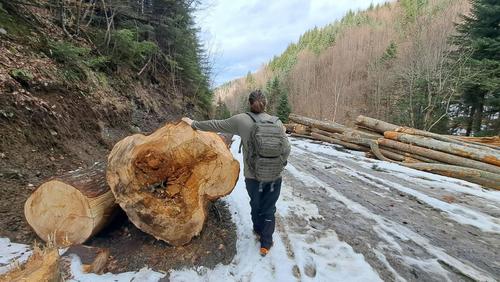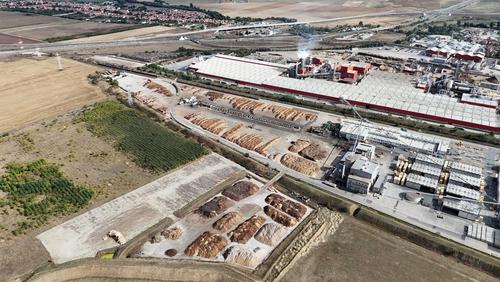EuroNatur, Robin Wood and Environmental Investigation Agency (EIA) expose the unchanged significant deficiencies in Romanian Natura 2000 areas. The country’s primary and old-growth forests are still not adequately protected.

Large trees typical of old-growth forests that were cut and left on the road.
© EIA/EuroNatur
The Kronospan sawmill site in Sebeş, Romania
© EIA/EuroNaturLocal authorities in Romania continue to regularly allow logging in Natura 2000 areas without carrying out the necessary nature impact assessments. These ongoing illegal logging activities and the environmental damage have been documented in detail by the EIA, in collaboration with EuroNatur and Robin Wood. They also uncovered that a number of sawmills continue to source large quantities of timber from protected natural areas, such as Călimani National Park and Rodna Mountains National Park. These facts paint a sobering picture of the business practices of the timber industry in Romania.
A particularly negative example is the wood processing plant in Sebeş, opened by HS Timber Group in 2003. The plant, which processes well over a million cubic metres of wood annually, has repeatedly been heavily criticised for reports of illegal timber sourcing, despite multiple changes of ownership and numerous public assurances that it would not source resources from protected areas. The Sebeş sawmill was recently sold to Kronospan, the world's largest manufacturer of chipboard. Whether the sale to Kronospan will change anything about the sawmill’s illegal sourcing remains an open question.


